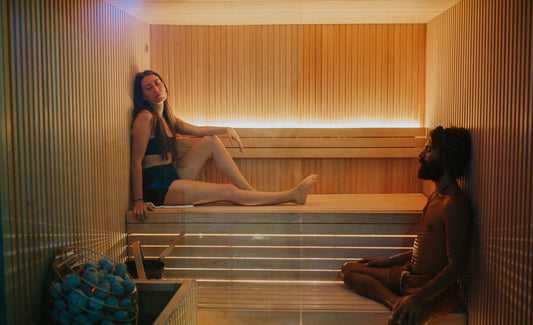
Attending an Arab wedding can be a vibrant and culturally rich experience. These celebrations often blend tradition with modernity, resulting in a festive atmosphere full of joy, music, and dance. If you’ve received an invitation to an Arab wedding, you might be wondering what to wear. This guide will help you navigate the appropriate attire, ensuring you feel comfortable and respectful while celebrating this special occasion.
Understanding Arab Wedding Traditions
Cultural Significance
Arab weddings are steeped in tradition, with customs varying across different countries and regions. Common elements include elaborate ceremonies, feasting, and communal celebration. Understanding these traditions can help you appreciate the event more fully and choose appropriate attire.
The Role of Modesty
Modesty plays a significant role in Arab culture, especially in attire. It's essential to be respectful of these values, as they reflect the cultural norms of the hosts. While styles may vary, opting for outfits that cover shoulders and knees is generally a safe choice.
Choosing the Right Attire
For Women: Elegant Dresses and Abayas
Traditional Dresses
A traditional Arab wedding often features stunning dresses. Women may choose to wear long, flowing gowns adorned with intricate embroidery or beading. Look for rich fabrics like silk or chiffon in vibrant colors, often complemented by elegant accessories.
Abayas and Kaftans
In many Arab countries, the abaya is a popular choice for formal events. These long, loose-fitting garments can be both stylish and modest. Opt for an abaya with embellishments or unique patterns to elevate your look. Alternatively, a kaftan can provide a similar effect, offering a blend of comfort and elegance.
For Men: Suits and Traditional Attire
Tailored Suits
Men typically wear tailored suits to Arab weddings, often in darker colors. A well-fitted suit exudes sophistication and respect for the occasion. Consider pairing it with a crisp dress shirt and a tie or bow tie to complete the look.
Traditional Thobes
In some regions, men may choose to wear a thobe (or kandura), a long, loose-fitting garment. This outfit is both comfortable and culturally significant. Opt for a thobe in a neutral color or with subtle embellishments to match the formality of the wedding.

Accessorizing Your Outfit
For Women: Jewelry and Accessories
Statement Jewelry
Jewelry can enhance your outfit, adding a touch of glamour. Choose statement pieces like large earrings or a bold necklace that complements your dress. Just remember to keep it balanced—if your dress is heavily embellished, opt for simpler jewelry, and vice versa.
Scarves and Shawls
A scarf or shawl can be a versatile accessory, providing coverage if needed while adding elegance to your look. Look for a beautiful fabric that matches or contrasts with your dress, and consider how you might drape it.
For Men: Ties and Accessories
Ties and Pocket Squares
For men, ties and pocket squares can add a pop of color and style to a suit. Choose patterns or colors that harmonize with your outfit while keeping the overall look sophisticated.
Traditional Headgear
In some cultures, men may wear traditional headgear such as a ghutrah or agal. If you're invited to a wedding where this is customary, consider wearing it as a sign of respect.
Footwear Considerations
For Women: Comfortable Yet Stylish Shoes
When selecting shoes, comfort is key, especially if you plan to dance or stand for long periods. Opt for stylish heels or embellished flats that match your outfit. Just ensure they are easy to walk in, as weddings often involve moving around a lot.
For Men: Dress Shoes
Men should opt for polished dress shoes that complement their suits or traditional attire. Black or brown leather shoes are classic choices, ensuring you look sharp throughout the event.
Understanding Color Choices
Bright Colors and Patterns
Arab weddings are known for their vibrant color palettes. While it's essential to choose colors that suit you, don’t shy away from bold hues or intricate patterns. Just be mindful of cultural sensitivities—avoid white in some cultures, as it is traditionally associated with mourning.
Respecting Cultural Norms
In some Arab cultures, specific colors may hold particular significance. For example, red can symbolize love and celebration, while green may represent prosperity. If in doubt, ask the couple or someone knowledgeable about the culture for guidance.
Tips for Attending an Arab Wedding
Arrive on Time
Punctuality is essential in many cultures, and Arab weddings are no exception. Arriving on time shows respect for the hosts and the significance of the occasion.
Engage with the Celebrations
Arab weddings often feature traditional music, dancing, and communal festivities. Don't hesitate to participate! Engaging with the celebrations can enhance your experience and show appreciation for the cultural practices.
Be Mindful of Photography
Always ask for permission before taking photos at an Arab wedding. Some families prefer to keep certain moments private. Respecting these boundaries shows cultural sensitivity and respect for the hosts.
Conclusion
Attending an Arab wedding is a wonderful opportunity to experience rich traditions and celebrate love in a beautiful setting. By choosing the right attire, being mindful of cultural norms, and participating in the festivities, you can ensure your experience is enjoyable and respectful. With this guide, you’ll be well-prepared to embrace the joy of an Arab wedding, making it a memorable occasion for everyone involved.


